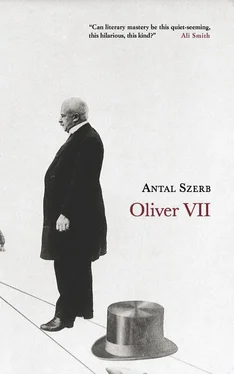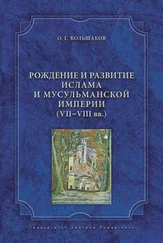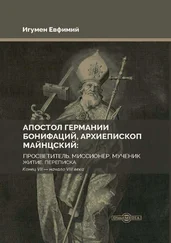And then, after all that buying and selling, it occurred to him that you could also buy a country. The proposal made to Pritanez was that he, Coltor, would take control of the entire wine and sardine production of Alturia. In return he would put the nation’s chaotic finances in order. The Alturians were poetical souls, for whom the whole tedious business of money was just a source of worry and disappointment, but now he was offering to lift this burden from the nation’s shoulders.
Pritanez embraced this proposal with the greatest enthusiasm, not least because the contract, once signed, offered him personal prospects such as the finance minister of an impecunious little country could only dream of — presuming, of course, that he addressed the issue with the resolution of a Cesare Borgia. Determination was not one of his characteristics. He was a rotund, circumspect individual, who lived in a perpetual state of terror.
By extending similar blandishments to his fellow ministers, Pritanez managed to secure their support. But that still left the most important item of all, the consent of the King. From the outset, Oliver had opposed the plan with unusual vigour. He would not hear of his country being sold to foreigners, and he turned a bright red if Pritanez ever dared mention it. The man was beginning to sense that the whole wonderful scheme would come to nothing, because of the stupid pig-headedness of a callow youth.
Coltor meanwhile went on developing the plan in ever finer detail, as if no obstacle to it could possibly arise from the Alturian side. He managed to rouse interest in it even in those ruling circles in his own country that had initially thought it rather ambitious, and their enthusiasm had grown steadily. In the end, the Norlandian government had adopted the scheme as its own, and Baron Birker, their ambassador in Lara, had done his best to win the King over. Eventually, it seemed, Birker’s reasoning had prevailed: Oliver now saw that his country had no other means of escape from financial chaos, and he finally accepted that he would have to put his name to the document.
Even so, the Norlandian government still felt it necessary to make sure that the King did not change his mind with the passing of time, and that he would continue to believe in the plan and support it. The best way to ensure that, it seemed to them, as a nation deeply committed to family life, would be to bind the King to their own ruling house by personal ties. They proposed that Oliver should take Princess Ortrud, daughter of the Emperor of Norlandia, as his wife.
Oliver had not the slightest objection to this idea. He had known Ortrud since childhood, when they had played together in the dust of the Imperial Palace gardens. She was a handsome, cultivated young woman, and they had always been the very best of friends.
However, when the news was given to the citizens of Alturia that they would soon acquire a queen in the person of Ortrud, a difficulty began to emerge. Normally they were as enthusiastic about such royal goings-on as the citizens of any other country, and their government had counted on this feeling. But it did not materialise. The press made great play of the fact that never before in the history of their Catholic nation had the king married a Protestant. One way and another, all sorts of absurd rumours began to circulate, most notably that the male members of the Norlandian royal family had been, for over a hundred years and without a single exception, drunkards, philanderers or halfwits. Some of the dailies went so far as to issue lurid pamphlets alleging that Emperor Eustace IV had stolen one of the smaller state crowns as a pledge for a Greek pawnbroker, and that Prince Simiskes had drowned in a barrel of rainwater when inebriated.
Then one day the real scandal broke.
The opposition press got wind of the Coltor Plan and announced the news with the full panoply of suitably outraged comment. What was particularly strange about all this was that only the King and his ministers — none of whom had anything to gain from a premature disclosure — had been party to the information. From that point onwards they viewed each other with even greater distrust, double-checking their wallets as they went into cabinet meetings, and burning their account books before leaving home. But for all their vigilance, they never discovered who the traitor was.
This marked the start of the role played by the fire-eating Dr Delorme. Here was a treasonous plan, which would bring total destruction on the state of Alturia! Day after day his ranting editorials poured out molten lava against it — it was scarcely credible that one man could carry so much lava inside himself. And these daily outpourings were devoured with ever greater eagerness by the population. The government made one or two clumsy attempts to silence the press, but in that archaic world the techniques for doing so were still remarkably undeveloped.
The young King became more and more personally unpopular. Prior to this, the good-hearted Alturian people had always taken a misty-eyed delight in his youthfulness. Now, when he appeared in public, he was met by sullen, hostile looks. His oleograph portraits were stripped from the walls of public houses, and the popular baby soap, cider and travelling basket that carried his image became unsellable, however great the discount offered by their horrified vendors. The Alturian people, like southern races everywhere, loved to express their political opinions in the form of slogans daubed on walls. Now, instead of the universal “Long live the King!” and “Oliver our pride and joy!” there was a steady shift to such sentiments as: “Foreigners out!” “Death to Coltor!” and “Keep our sardines free!”
The unrest was quietly fomented by underground organisations. The Alturians, although gentle and dreamy by nature, were born conspirators. For decades they had channelled all their sporting inclinations in this direction, and the plotters, as we noted earlier, came from every level of society. Following ancient tradition, they swore an oath of loyalty to the ‘Nameless Captain’. There were those who thought that this being was a mere mythical notion, but others, the majority, were convinced he was a real person, who would come forward and declare himself at the critical moment.
The conspirators’ stated aim was to force the abdication of Oliver VII and replace him with the country’s grand old man, Geront, Duke of Algarthe — the person on whom Sandoval was to call the following day.
The one-hour taxi ride from Lara to Algarthe was not cheap, but that too was added to Sandoval’s expense account with the Revolutionary Committee. A man on a mission for important conspirators can hardly take the suburban train.
Some ten minutes before they reached the mansion, the car was stopped.
“Excuse me, sir — customs check,” said the military officer, whose appearance was so aristocratic Sandoval found it hard to believe that this was a matter of routine customs harassment. There was no inspection process, only questions about his name and the purpose of his journey. When he explained who he was, and that he was painting the Duke’s portrait, the officer saluted politely and waved him on.
The taxi turned into the park and proceeded up the broad yellow driveway. Two astonishingly ancient footmen stepped forward, opened the door and greeted him affably.
“His Highness will be delighted to see you,” they assured him. “So few people have come this way recently … ”
Sandoval made his way through the foyer, whose walls were hung with vast historic canvasses in the somewhat rhetorical style of the mid-nineteenth century. The Duke’s taste was for delicate miniatures, and these hereditary daubings had been banished to the entrance. In the second room stood some small earthenware statues; in the third, cupboards filled with kamea —little square objects engraved with kabbalistic symbols; in the fourth the Duke’s renowned collection of keys. Everything was in exemplary order.
Читать дальше












